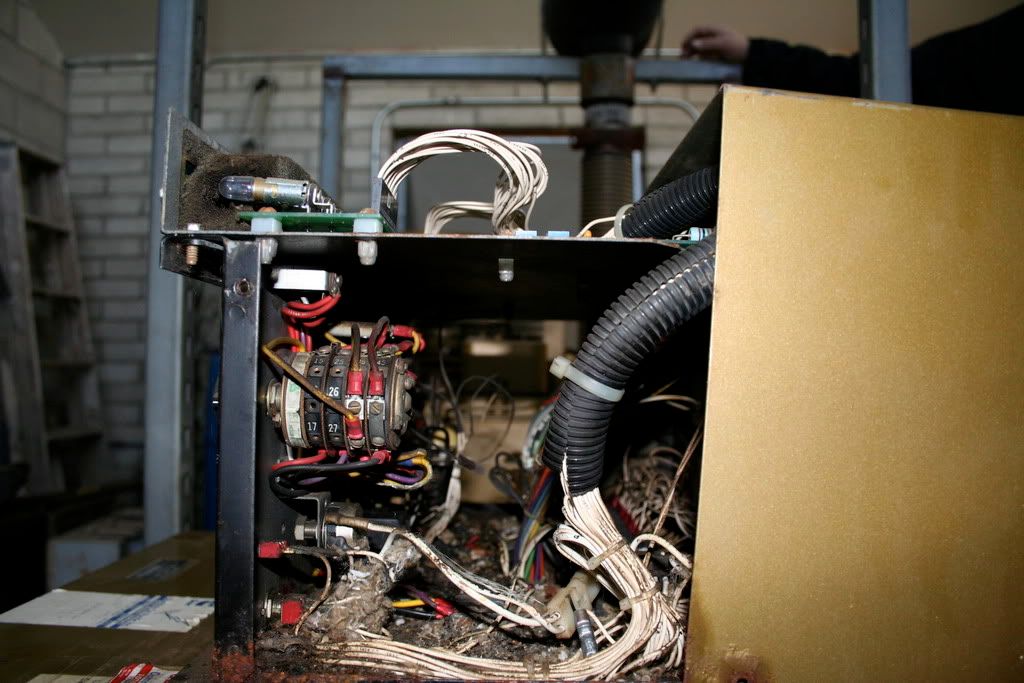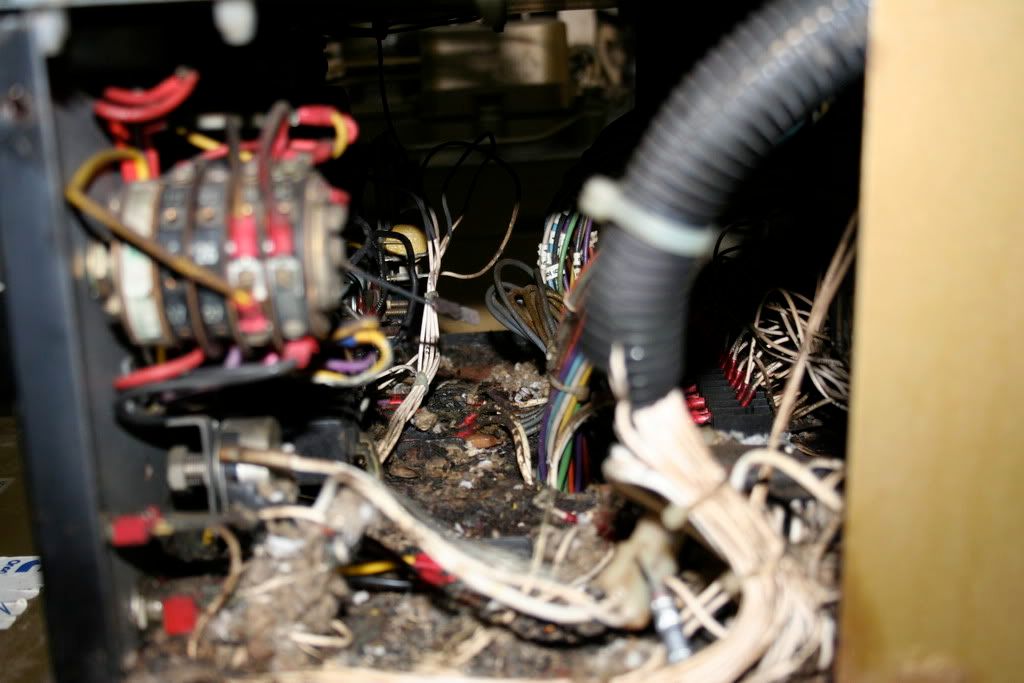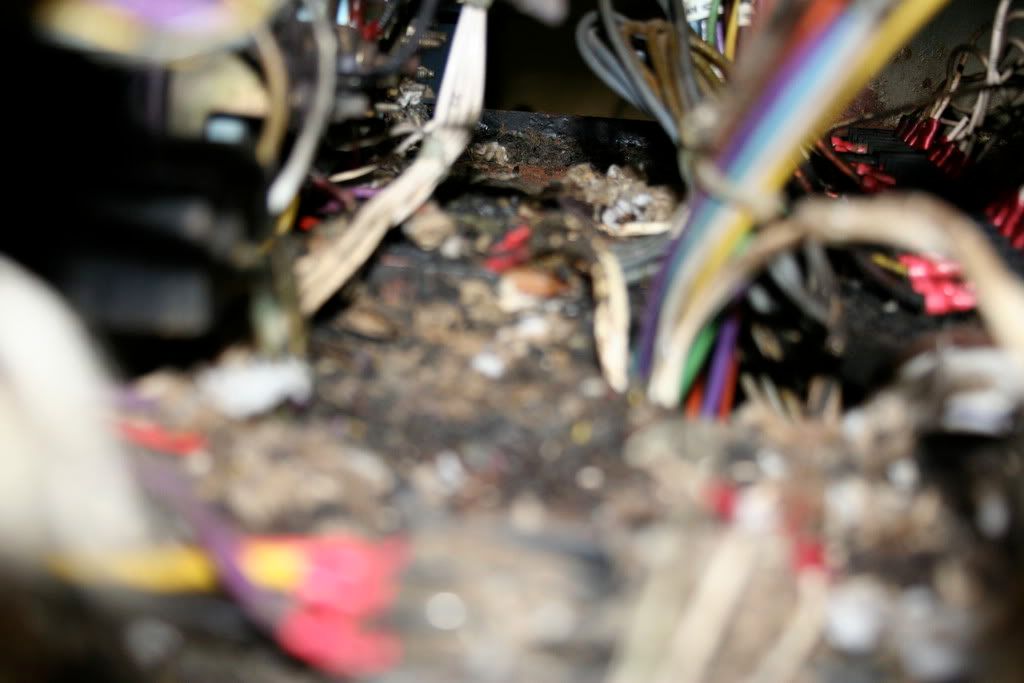Natural or Man-made disasters, are you ready?
This is just a general conversation starter to see how prepared for the worst possible scenerio your department is.
Do you have a food stockpile? Do you have a large enough generator that runs and is maintained? Do you have shower facilities? Do you have the means and capabilities to help the residents of your town? Does your department have adequate training for massive storms (hurricanes/tornado/earthquakes) to deal with a possible MCI issue? How prepared is your town for the residents who get displaced and or injured from a event?
Man-made disasters (I will group in Haz Mat incidents here) are as common, and yet the elast planned for at times. Does your local Hospitals have the chemical lists from the local facilities so they can compile a stack of intel for their own benefit? How prepared are you for a incident regarding haz mat? Are your team members covered in case of an exposure issue? (this is where my friend Michael Schlags will hopefully comment on the ToxMedic program) In the event of a MCI issue regarding terrorism are you prepared for a worst case scenerio? Have you implimented a joint training with your local communities to ensure interoperability before a major incident?
The point I am trying to make is simple. We are doing our thing through training and yet everytime a storm comes, we are "blindsided." We look at Haz Mat calls and see that exposure is a major issues. (be it wind shift, incorrect intel) We all look back at major incidents of terror and see the standards were used and they worked. FDNY had accountability at the towers. They knew (within reason) who was in the building and what their job was, and no other organization operating there did. We need to take a page from their book and adopt it as the standard. We ALL need to step back and stop the "it can't happen to us" mentality. This mentality has blindsided too many departments nationally and has prevented departments of all the emergency services to not utilize more time to train on the issues. How ready are you?
Do you have a food stockpile? Do you have a large enough generator that runs and is maintained? Do you have shower facilities? Do you have the means and capabilities to help the residents of your town? Does your department have adequate training for massive storms (hurricanes/tornado/earthquakes) to deal with a possible MCI issue? How prepared is your town for the residents who get displaced and or injured from a event?
Man-made disasters (I will group in Haz Mat incidents here) are as common, and yet the elast planned for at times. Does your local Hospitals have the chemical lists from the local facilities so they can compile a stack of intel for their own benefit? How prepared are you for a incident regarding haz mat? Are your team members covered in case of an exposure issue? (this is where my friend Michael Schlags will hopefully comment on the ToxMedic program) In the event of a MCI issue regarding terrorism are you prepared for a worst case scenerio? Have you implimented a joint training with your local communities to ensure interoperability before a major incident?
The point I am trying to make is simple. We are doing our thing through training and yet everytime a storm comes, we are "blindsided." We look at Haz Mat calls and see that exposure is a major issues. (be it wind shift, incorrect intel) We all look back at major incidents of terror and see the standards were used and they worked. FDNY had accountability at the towers. They knew (within reason) who was in the building and what their job was, and no other organization operating there did. We need to take a page from their book and adopt it as the standard. We ALL need to step back and stop the "it can't happen to us" mentality. This mentality has blindsided too many departments nationally and has prevented departments of all the emergency services to not utilize more time to train on the issues. How ready are you?
Tags:
Replies to This Discussion
-
Permalink Reply by Kimberly A Bownas on August 30, 2008 at 8:09pm
-
We have a good size generator at our firehouse and it is maintained. We have in the past had to move residence from an infirmary to the firehouse during an incident and that worked out pretty good. the other things i am not sure about. Thinking about it now, it is kind of scary to think we may not be as prepared as we think we are. You are right though Mike, we do have to stop thinking "it can't happen to us" mentalityy. Nice post.... Stay safe..
-
Permalink Reply by Bill Brierton on August 30, 2008 at 10:01pm
-
Personally I think I am. As for my station probably not since it is a combination department where the county and volunteers are suppose to work together. I had hoped things would improve after 9/11 but instead things have gotten worse between the career, volunteers and county. The county tries to ride rough shod over the volunteers, the career fire fighters look for ways to increase their benefits and pay and a majority of volunteers don't want the county to interfere in their "little kingdom."
I think as 9/11 fades into memory, any progressive ideas that were considered will die on the vine, mainly because of cost. The bean counters always look for ways to save money and it is usually the fire department that is one of the first departments on the chopping block.
-
Permalink Reply by Joe Stoltz on August 30, 2008 at 11:16pm
-
Great topic, Mike. A few years ago we replaced our WW II era gasoline generator with a natural gas fired one that automatically switches over. It will run the entire firehouse for an extended period of time in case we get the occasional ice storm or wind storm with extended power outage.
As far as food goes, we don't keep much on hand due to the perishable nature of many foodstuffs. However one of our members is "well connected" with a grocery store so we can get ample food supplies within the hour if and when need be.
We have used our fire house as a shelter before in extreme cases, however we moved the portable beds to the town hall and we need to take an inventory to see if they are still there.
-
Permalink Reply by Mary Ellen Shea on August 31, 2008 at 12:47am
-
We have a massive generator at our fire station which renders us a "safe haven" during a natural disaster situation..
But I can't help thinking that we're dropping the ball in terms of not having an emergency plan in place for this type of scenario. We rely on plectrons for departmental response. So if the power goes out...guess what plugs into the wall? Our radios are limited in range; I think we'd all have adequate intelligence to know to head to the department in light of a power outage...but still.
We have NO written plan in effect for a natural disaster on an epic scale. That worries me.
-
Permalink Reply by Mary Ellen Shea on August 31, 2008 at 12:48am
-
Two words: Hurricane Gustave.
Are you ready for something similar?
-
Permalink Reply by anne potter on August 31, 2008 at 4:12am
-
I don't think anybody is prepared when something major happen .. I think inour minds we know what we want to do and everytime something happens we move toward s that goal of getting ready for the next time.. Like this hurricane that is coming.. Learned from the first one, so they are getting prepared for everything that will happen. Never know what will happen so we do the best we can I am sure if and when it hits.. After we will all sit down and say man should have done it this way or that way..So next time we add that to the list.... 9/11 we can all sit back and say we should have,but when it comes down to it at that time those men thought they had nailed that situation and was doing the best they could... Still this far down the road god forbid something like that happens again... Are we prepared or are we doing the best we can at that time... I would hope myself if something happens in my area that at that time we all are doing the best we can...
-
Permalink Reply by T.J. on August 31, 2008 at 8:22am
-
I'd say our whole county is ready, we've gotten a lot of help from FEMA with founds. Since we're the county thats at one end of the Mackinaw Bridge that goes between the upper and lower parts of Michigan, its a big part to know what to do and we've trained a lot on what to do if the bridge was to get hit. We also have a disaster warehouse were we keep a lot of canned food and other things just in case of a disaster.
-
Permalink Reply by Karen on August 31, 2008 at 2:36pm
-
I will say, in my area, with both paid and volunteer fire companies as well as MRC and CERT teams, of which I am a member of both, we have a good grasp on handling a MCI be it natural or man made.
However, I will also say, until the real thing actually hits, I don't believe you can ever state that your community, county or even state is entirely prepared, there could always be something or some situation that could blindside you.
Good topic, I'm sure this subject WILL be brought up for discussion in many fire houses around the country.
-
Permalink Reply by Mike Schlags (Captain Busy) Retd on August 31, 2008 at 3:15pm
-
Where do you start with this one? There are so many watchouts that you have identified that it serves as an excellent reminder for everyone to try and out guess what it will take to be prepared.
I noted that the first few posts reflected on their generator capabilities. With this in mind, I share the following "lessons learned" information.
Where I work, is a beautiful fire station overlooking the pacific ocean and the Santa Barbara Channel Islands. It's a remote station surrounded by foot hills of the Santa Ynez Mountains.

Santa Barbara County Fire Station 18 / Gaviota, CA 93117
Now that I have created this ideal setting in your head, what I am not sharing is that it's wilderness where we work. Surrounded by brush and open land. This includes all the critters that live there too. So where does generators come into this?
Like all of us, we conduct weekly operational tests of the generator which is precluded by checking the oil, making sure that the battery is charged, general maintenance inside the generator room, etc. Until one day...
The generator would not start... in fact, the generator wouldn't even make a clicking sound. Things had been just fine for years, and now, even though the outward appearance of the generator room was exceptional, and you had always done routine testing and maintenance, the generator was dead in the water. We need to have one because wind speeds in our area can exceed 50 mph routinely and power failures are not uncommon.
So, we called our general services who are responsible for maintaining the county fire stations. I was standing right next to him when he started to diagnose what the problem was. The problem became quite apparent when he removed the cover to the control box that had the electrical wiring and hardware... and a dead fried mouse in the nest. Looks like that last wire it chewed through created an electrical short that fried both the mouse and the circuitry.



Lessons Learned: If you have rodents then you have to look at where your electronic wiring looms live. These compact spaces provide a wonderful place for rats and mice to nest. It also literally destroyed our generator which to replace would be in the tens of thousands of dollars. Repair estimates of at least $9,000.00 were quoted and to date, the generator remains out of service with a portable temporary replacement generator in place until we can find the money to repair or replace the existing generator. And to think that this could have been prevented if someone had only warned us. We would have looked. I'm sure you will now... TCSS, Mike
-
Permalink Reply by Ben Waller on August 31, 2008 at 3:42pm
-
My department has an ongoing emergency plan that is part of our hurricane plan and our CEMP. (Comprehensive Emergency Management Plan) Key elements of this are:
Generators for all 7 stations, dispatch, and the headquarters/maintenance shop building.
Hurricane shutters for the hurricane-resistant buildings.
Early evacuation plans for the non-hurricane-resistant buildings and subsequent evac plans for the other stations.
Military-type cots adequate to sleep all department members for an extended period if we have to recall everyone and go to 12-hour operational periods.
A plan to get a refrigerated tractor trailer of food for extended operations, aloing with a faith-based disaster group that is contracted to be the cooks. We also have a plan that will get us a large quantity of potable water and another tractor-trailer of MREs on short notice.
Our own fuel tender - we can refuel our apparatus for at least a week of operations from our own mobile fuel source.
Boats - we don't own many of our own, but most of our members have their own, and these are available in case we lose the bridge to the mainland.
Our own heavy USAR and hazmat units, plus a trailer with extra hazmat suits and tools so we can work two incidents simultaneously if required.
Extra chainsaws and the capability to do field repairs. That capability includes shop techs that are certified in small engine repair, a cache of extra chains, and a utility truck that can do mobile chainsaw repeairs.
An accountability system that doesn't depend on electricity or electronics - we use the Passport system. It is part of every vehicle in our fleet. We also have three extra makeup kits so that we can add teams and task forces as needed.
A stockroom of additional medical supplies and a MCI trailer - we have enough for several complete ambulance restocks without off-site resupply being needed.
A COOP (continuity of operations) plan. This plan identifies critical needs for every division and unit, including infrastructure, information technology, records, supplies, vehicles, communications technology, critical leadership and support staffing, and alternate facility identifiction if primary facilities are destroyed or unusable.
Multiple off-site Base Camp sites - we have three, two about 20 miles inland that should withstand up to a Cat. 2 hurricane, and another one about 80 miles inland that should withstand anything our state survives.
A hardened EOC. Our EOC is on an upper floor of a hardened building, it's in a hardened building, has it's own generator power, and is shares a local emergency power generation station with a nearby water and sewer treatment facility. It has it's own kitchen, restrooms, and conference areas. We stock it with paper NIMS forms in order to track resources and needs the old-fashioned way if the electricity goes out.
There is more, but you get the idea...
We aren't comfortable with out level of preparedness, and work to improve it on literally a daily basis. We have integrated our municipal government, other town departments, local utilities, heavy equipment contractors, mutual aid departments, and state emergency management plans and procedures into our CEMP.
Most importantly, our municipal government has established a contingency fund that provides for all town employee's salaries and benefits for two years. That will ensure no layoffs if it takes us two years to recover from a major disaster. It's one of the better parts of the plan.
For more on a CEMP for fire and rescue departments, see the new IFSTA Emergency Management Handbook, 1st Edition that was published in March 2008. Several components of my department's EM plan are discussed in this text.
-
Permalink Reply by mike wright on August 31, 2008 at 10:10pm
-
We was hit a couple of years ago with a major ice storm. The whole area was out of power for almost 5 days. We at the station have in our possetion a 30k air force generator. This is big enough to run our station and community center. We had it up and running for water and hear for people in the area. We ran this for 5 nights and days. The community really appreitiated the extra mile we went to help the community out.
-
Permalink Reply by Engineco913 on September 1, 2008 at 7:17pm
-
Thats a great account of being ready for the people we serve. Have you done anything else aside from the generator to improve your service for the next storm?
Specialty Websites
Find Members Fast
Firefighting Videos
© 2025 Created by Firefighter Nation WebChief.
Powered by
![]()
Badges | Contact Firefighter Nation | Privacy Policy | Terms of Service